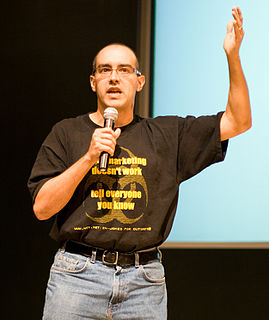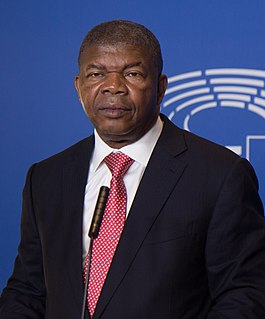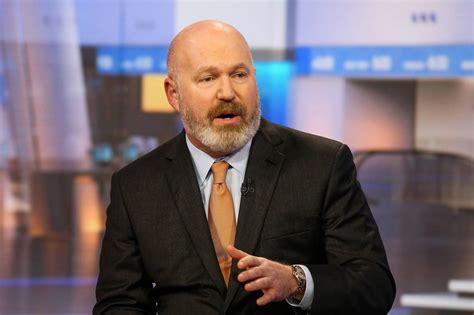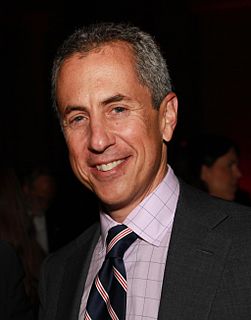Top 892 Investors Quotes & Sayings - Page 12
Explore popular Investors quotes.
Last updated on December 11, 2024.
I don't think it ever occurred to me that I wouldn't be an entrepreneur. My dad became a real estate developer, and that work is usually project-based. You attract investors for a project with a certain life cycle, and then you move on to the next thing. It's almost like being a serial entrepreneur, so I had that as an example.
Hedge funds try to produce above-average investment returns using tactics ranging from traditional stock-picking to complex derivative and arbitrage plays. High minimum investments, redemption restrictions and aggressive strategies make them suitable mainly for more sophisticated and well-heeled investors.
I believe investors should invest for the long run, so I don't buy and sell. I usually maintain the classic index of global equities, diversified U.S. and global and emerging markets, and when the risk is larger, I diminish the amount in global equities and put more into liquid assets - but very irregularly.
There are certain areas where foreign investors can help the local people to generate wealth, and improve their quality of life. Some companies, for example, Del Monte, which produces pineapples in Kenya, pay a huge amount of taxes, I am sure, to the Kenyan government, and they do create jobs for thousands of locals.
Of all the thankless jobs that economists set for themselves when it comes to educating people about economics, the notion that society is better off if some industries are allowed to wither, their workers lose their jobs, and investors lose their capital - all in the name of the greater glory of globalization - surely ranks near the top.
There are only a few things investors can do to counteract risk: diversify adequately, hedge when appropriate, and invest with a margin of safety. It is a precisely because we do not and cannot know all the risks of an investment that we strive to invest at a discount. The bargain element helps to provide a cushion for when things go wrong.
While the apostles of the new so-called "behavioral" theory present ample evidence of how often human beings make irrational financial decisions, it remains to be seen whether these decisions lead to predictable errors that create systematic mispricings upon which rational investors can readily and economically capitalize.
Women are a dynamic economic force. We represent the largest consumer market in the world and are drivers of GDP. More and more companies recognize that when they support women as customers, employees, leaders, future investors and partners, they are adopting sound business strategies and advancing social progress.
Today's consumers are eager to become loyal fans of companies that respect purposeful capitalism. They are not opposed to companies making a profit; indeed, they may even be investors in these companies - but at the core, they want more empathic, enlightened corporations that seek a balance between profit and purpose.
There are two kinds of investors, be they large or small: those who don't know where the market is headed and those who don't know what they don't know. Then again, there is a third type of investor: the investment professional, who indeed knows he doesn't know, but whose livelihood depends upon appearing to know.
Sure there are some companies at the margins of our society that probably do that and I think we all have the responsibility as consumers and as investors to avoid them like the plague. If we do, they won't last very long. Doing what's right is the only possible formula for long-term - I emphasize long term - business success.
In the early years of Rent the Runway, our challenge was twofold: getting investors to buy into our vision for how the world was changing and getting women to understand that renting was a viable - let alone a smarter - alternative to spending hundreds of dollars on dresses they would wear just once.
If you're going to lead a space frontier, it has to be government; it'll never be private enterprise. Because the space frontier is dangerous, and it's expensive, and it has unquantified risks. And under those conditions, you cannot establish a capital-market evaluation of that enterprise. You can't get investors.
Some foreign investors accuse us of being unfair to shareholders by using our resources for community development. Yes, this is money that could have made for dividend payouts, but it also is money that's uplifting and improving the quality of life of people in the rural areas where we operate and work. We owe them that.
We are talking about capital-intensive enterprises, so market certainty is the key. Investors and entrepreneurs have to know that there will be a guaranteed U.S. renewable energy market in which they can compete. Otherwise, they will create the next generation of green companies and green jobs in Asia, not here.
Stock prices are likely to be among the prices that are relatively vulnerable to purely social movements because there is no accepted theory by which to understand the worth of stocks....investors have no model or at best a very incomplete model of behavior of prices, dividend, or earnings, of speculative assets.
Hundreds of investors ask me questions each year about the dilemmas they confront. Their worst problem? Uncertainty. They are traumatized and become emotional or confused to the state of inaction. Even worse, they try to solve a short-term problem in a way that hurts them financially in the long run.
We need to do a lot of restructuring of the existing ports, particularly Durban. The separation of oversight and regulation from operations in the port, the possibility of bringing in private investors, to put in new investment to build capacity in the port. So, the restructuring of the ports will take place like that.


















































